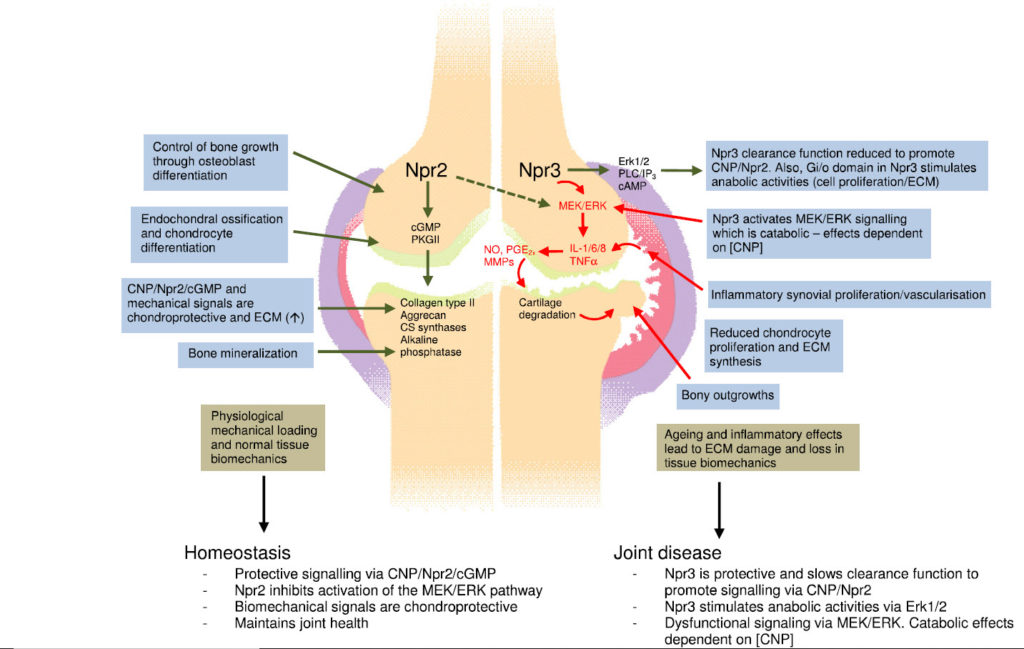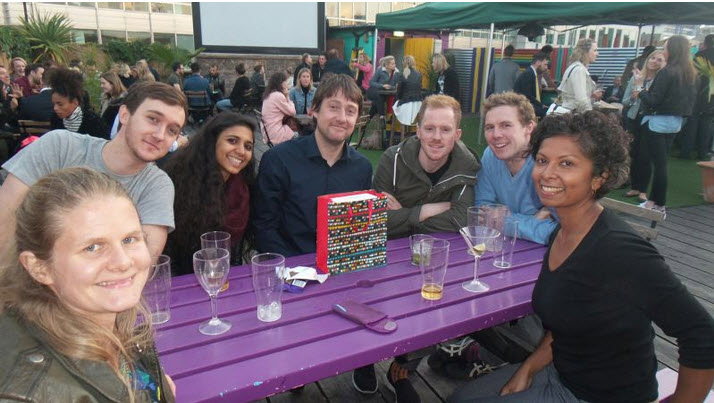Preventing osteoarthritis with exercise and CNP
Osteoarthritis (OA) is a chronic, painful condition that affects the cartilage tissue lining the knee joints in both the young and ageing population. There are drugs available to control the pain but none that stop the progression of the disease in a safe and effective way. Our research has shown that mechanical loading of cartilage, such as that experienced when a person is walking, helps to control the levels of molecules which speed up the breakdown of cartilage. If we can find out why mechanical loading blocks the damaging process, we can control the extent of cartilage loss and therefore slow down or even stop osteoarthritis.
Previous studies in our lab have shown that agents such as the C-type natriuretic peptide (CNP) has anti-inflammatory effects and could be administered in knee joints in conjunction with exercise to promote cartilage repair. Furthermore, the project funded by the AO Foundation and Arthritis Research UK has identified a novel homeostatic pathway induced by CNP in human cartilage.

We created a synthetic gel of damaged cartilage similar to osteoarthritis in the lab, and added the CNP protein that is naturally found in healthy cartilage tissue.
We compressed and exposed the gel to forces that are similar to when a person does moderate exercise in real life.
Examining the gel samples after the experiment, we found two new protective proteins that have anti-inflammatory and reparative effects. We also found that the effects of CNP change as person gets older and has more diseased cartilage.
“While these are early results, the findings could be useful in treating osteoarthritis, which is the most common type of arthritis and affects more than 8 million people in the UK,” explains Dr Nick Peake, co-author of the study from Queen Mary’s Institute of Bioengineering.
Dr Nick Peake added: “The important observation is the complementary effect of the CNP protein and the effect of compression on the cells. This multiplies the beneficial effects of both resulting in reduced inflammation and cartilage repair.”
Lead researcher, Dr Tina Chowdhury, also from Queen Mary’s Institute of Bioengineering, said: “We are very excited about the potential for this work and the next step is to replicate results in a diseased animal model before the benefits can be translated to patients.
“We are working closely with pharmacologists and clinicians at the William Harvey Research Institute and Royal London Hospital to make the work clinically feasible in the next five years.”
Arthritis Research UK’s Medical director, Professor Alan Silman welcomed the results of the study, adding: “This is an exciting piece of research. We know that exercise is essential to keep cartilage healthy and protect the joints against arthritis.
“Applying this knowledge to the treatment of osteoarthritis, where cartilage loss is substantial, has been challenging. If these preliminary results are validated in further research they could offer a novel and much needed approach to treating the underlying cause of this distressing disorder and not just reducing the symptoms.”
Dr Nick Peake who works in Tina’s lab talks about CNP research.
The research was funded by Arthritis Research UK and the AO Foundation and published in Arthritis Research Therapy.
https://www.ncbi.nlm.nih.gov/pmc/articles/PMC3978875/
For more details, visit http://www.arthritisresearchuk.org/news/general-news/2013/july/protein-may-have-protective-role-in-osteoarthritic-joints.aspx

Good luck to Dr Nick Peake who starts his lectureship at SHU.
- New therapy to heal the amniotic membrane and prevent pre-term births
- Gender science and equality – are girls better at science?